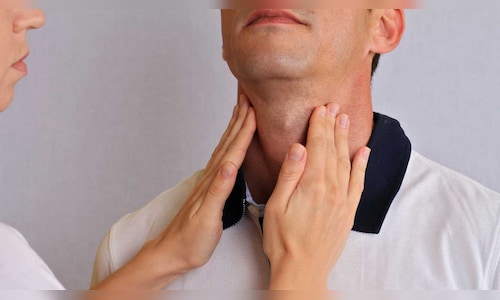Thyroid Health Breakthroughs: New Treatments Offer Hope for Millions in Ireland

World Thyroid Day (May 25th) shines a spotlight on a vital gland often overlooked: the thyroid. This small, butterfly-shaped organ nestled in your neck plays a huge role in regulating your metabolism, energy levels, and hormonal balance. For the millions in Ireland living with thyroid disorders, from hypothyroidism (underactive thyroid) to hyperthyroidism (overactive thyroid) and autoimmune conditions like Hashimoto's thyroiditis and Graves' disease, advancements in treatment are bringing renewed hope.
Why is Thyroid Health so Important?
The thyroid gland produces hormones – primarily thyroxine (T4) and triiodothyronine (T3) – that act like the body's thermostat, controlling how quickly your body uses energy. When the thyroid isn't functioning correctly, it can lead to a wide range of symptoms, impacting everything from weight and mood to heart health and fertility. Common symptoms include fatigue, weight gain or loss, changes in heart rate, anxiety, depression, and difficulty concentrating.
Traditional Treatments & Their Limitations
For many years, treatment options for thyroid disorders have primarily focused on hormone replacement therapy (for hypothyroidism) or medications to suppress thyroid hormone production (for hyperthyroidism). While these treatments can be effective in managing symptoms, they often come with their own challenges. Hormone replacement therapy requires careful monitoring and dosage adjustments, and some patients may still experience ongoing symptoms. Medications for hyperthyroidism can have side effects and may not be a long-term solution for everyone.
Emerging Therapies: A New Era of Hope
However, the landscape of thyroid treatment is rapidly evolving. Exciting new therapies are emerging, offering potential for improved outcomes and a better quality of life for those living with thyroid disorders. Here are some key developments:
- Radiofrequency Ablation (RFA): This minimally invasive procedure uses radio waves to heat and destroy thyroid nodules, offering an alternative to surgery for certain conditions.
- Improved Diagnostic Tools: Advanced imaging techniques and antibody testing are allowing for earlier and more accurate diagnosis of thyroid disorders, leading to more targeted treatment.
- Targeted Medications: Research is focused on developing medications that specifically target the underlying causes of thyroid autoimmune diseases, rather than just managing symptoms.
- Personalized Medicine: A growing understanding of the genetic and environmental factors that influence thyroid function is paving the way for personalized treatment plans tailored to individual patient needs.
- Nutritional Approaches: While not a replacement for medical treatment, emerging research highlights the role of nutrition in supporting thyroid health, including selenium, iodine (in moderation), and vitamin D.
What Does This Mean for People in Ireland?
Access to these newer therapies may vary across Ireland, and it's important to discuss treatment options with your doctor. However, the increasing awareness of thyroid disorders and the ongoing research in this field signal a positive trend. World Thyroid Day is a reminder to prioritize your thyroid health, be vigilant for symptoms, and seek medical attention if you have concerns. Early diagnosis and appropriate treatment can significantly improve your quality of life and overall well-being.
Resources in Ireland:
- Irish Thyroid Disorders Association (ITDA): https://www.itda.ie/ - A valuable resource for information and support.
- Your GP: Your family doctor is the first point of contact for any health concerns.






